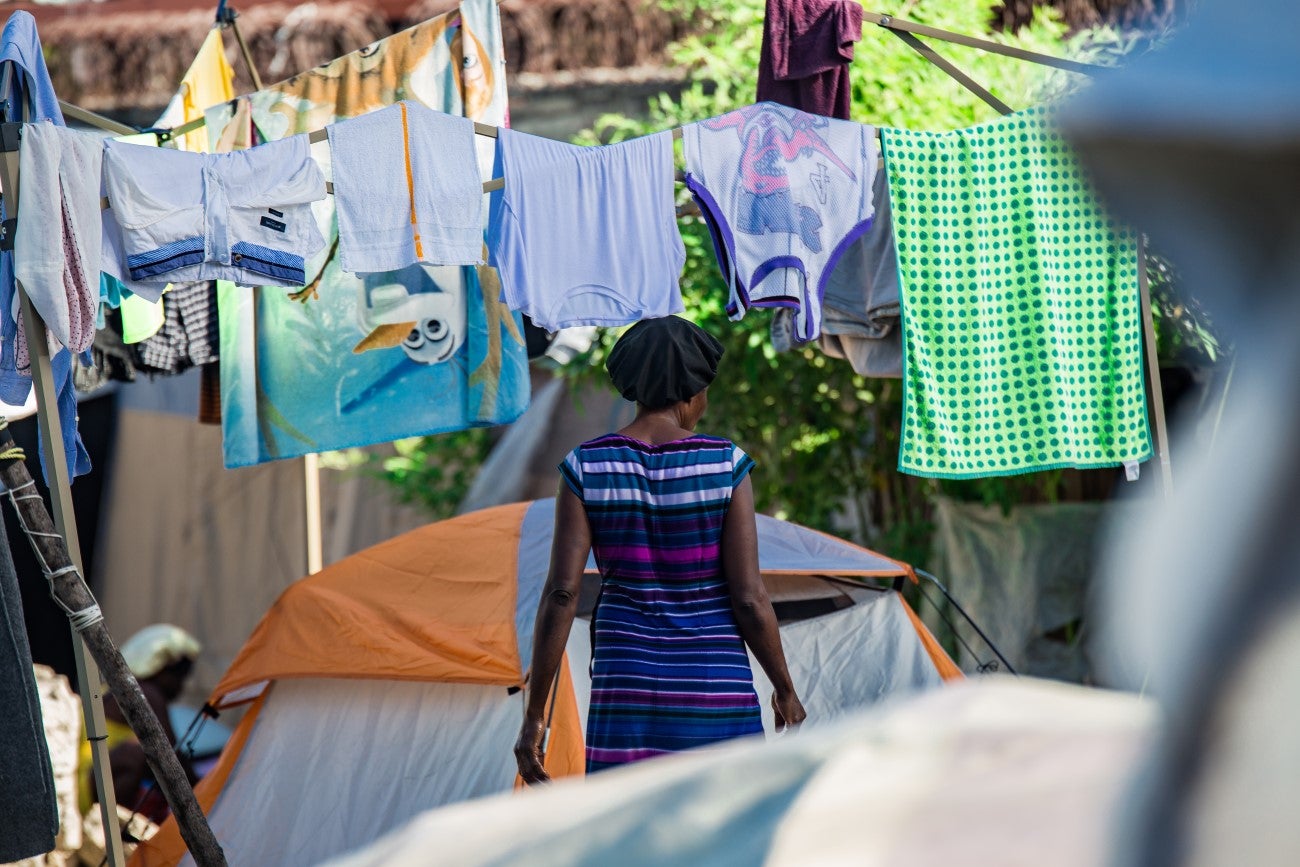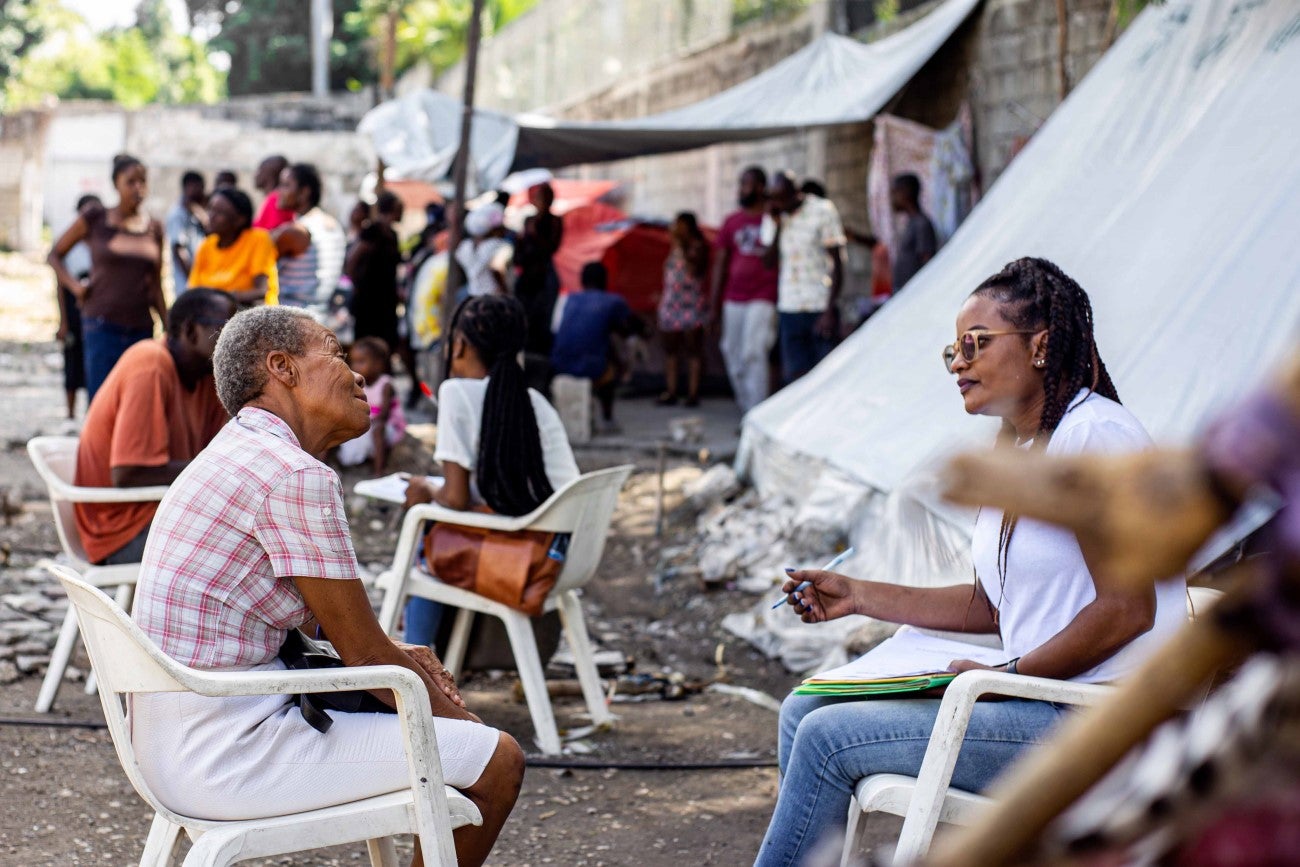
Port-au-Prince, July 12, 2024 (PAHO) - Since August 2023, armed violence in the Port-au-Prince Metropolitan Area has forced many families to leave their homes, leading to a massive displacement of the population to makeshift sites such as schools and public establishments. Faced with this critical situation, the Ministry of Public Health and Population (MSPP), with the support of the Pan-American Health Organization (PAHO) and USAID through the project "Sustaining and scaling-up the health response to cholera in Haiti", has coordinated an emergency response, one of the main components of which is psychosocial support for populations suffering from trauma linked to their displacement and fear of epidemics, such as cholera, exacerbated by their new living conditions.
"Fleeing with my children under automatic gunfire was a traumatic experience. Today, these memories haunt me, and I find it hard to walk in the street", says Venita, 50, originally from Carrefour-Feuilles and current resident of the Lycée Anténor Firmin IDP's site.
She is one of many displaced people who have benefited from psychosocial assistance from MSPP specialists supported by PAHO/WHO. "The management of this crisis, and in particular the control of epidemics such as cholera, is not limited to the medical aspect; it requires an integrated approach that also addresses the psychological trauma and precarious living conditions of the displaced population", underlines Dr. Yanick Mutani, mental health consultant at PAHO.
Since the beginning of 2024, 10 psychologists and 10 social workers have been deployed across 10 sites to implement a series of activities aimed at strengthening individual and community resilience. Individual psychological support sessions were offered to over 700 people in intense distress, while group sessions helped promote collective resilience among 1,400 people. More than 400 children took part in recreational and psycho-educational activities, helping them to evacuate their traumatic experiences. In addition, awareness-raising workshops were organized to provide information on hygiene and mental health practices, reducing the stigma associated with psychological disorders and cholera for around 1,700 people. In all, more than 4,400 internally displaced people benefited from this support.
"The fear of the cholera epidemic has a real impact on us. The mental health consultations and medication have brought me some relief. The regular group sessions have also helped a lot," concludes Venita.
To date, armed violence has displaced more than half a million people, according to the International Organization for Migration (IOM). This constant increase in the number of internally displaced people underlines the urgent and ongoing need for mental health support. PAHO/WHO remains committed to providing essential psychosocial support to help these populations overcome the challenges of their new living conditions and strengthen their resilience in the face of health and social crises.





